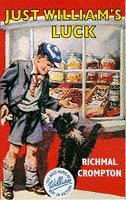'a legend never dies'
Ascent
by Jed Mercurio and Wesley Robins
I bloody loved Mercurio's novel Ascent. It made me feel like a kid again, reigniting those dreams of being an astronaut, and combined high-octane excitement with moments of nail-biting tension to leave me thrilled and exhausted by the end but also incredibly moved. With such boys-own thrills you can imagine my excitement when I learned that the novel was going to be turned into a graphic novel, it being the perfect material for the comic treatment. Wesley Robins is the artist with the task of sending Yefgeni Yeremin, aka Ivan The Terrible, on his trajectory out into the stars and he manages to condense much of the excitement from the novel into his 120 pages. It remains one for the boys but, in this graphic form particularly, a book likely to appeal to boys from 9 to 90.
In 1946 Yeremin emerges from the 'Great Patriotic War' orphaned and alone. In the opening panels we quickly learn that in amongst the hardships of rebuilding the shattered country and the even harsher challenges of life in the state orphanage there is one hope for a boy like Yeremin: the scholarship for the best pupil to the air school at Chkalov. This is something he will have to fight for, literally, but we are quickly moved with him from the brutalities of Stalingrad to skies above Korea where a new conflict offers the opportunity for one orphan to transform himself into legend. The Soviet Air Force (VVS) was never officially in Korea. Blank uniforms and virtual radio silence allow these jet aces to compete with the Americans for supremacy but whereas their American counterparts are feted like movie stars the Soviets remain anonymous, 'phantoms', their only glory coming from amongst each other and for Yeremin the comforts of a woman known only as 'the widow.' The dogfights are brought vividly to life by Robins beginning with the contrails that tempt each side into conflict, the speeding jets passing through the frame so that we get a sense of the difficulty of catching one in your sights, and the extraordinary physical pressures as pilots battle against g-forces followed by the thrill of seeing your prey burst into flames.
Yeremin steadily progresses into becoming the most feared of the Soviet pilots, dubbed Ivan the Terrible, but his only reward for becoming ace of aces is exile to Franz Josef Land in the Arctic Circle. In this frozen isolation the fighter pilot who had never officially existed begins to feel the effects of his anonymity, begins to feel a lack of purpose even whilst a family with 'the widow' grows up around him.
He may be isolated but he is aware of the rapidly progressing space race. Russia's greatest success is a moment of desolation for him, a single flight that eclipses every single one of his many successes and brings him to the point of suicide. But a moment of his old tenacity brings him back to the attention of the authorities who happen to need at that moment a man capable of flying 'an untested vehicle to the moon, alone, and land it, alone' as well as being the kind of man whose very existence can be denied if it should all go wrong.
And so we head into space, Yeremin is launched in advance of the Apollo 11 mission, out into the unknown, the ultimate exile. Robins' palate, which has never been vibrant, becomes even more monochromatic. The harsh sunlight and total darkness of space bring a wonderful contrast to the panels of this final third and in a similar way to the original novel we feel the privilege of sharing the cramped space within that vast expanse, and all the moments of high drama and tension that follow. The stakes couldn't be higher. Perhaps only a man who has achieved so much in his life and yet never seen his name attributed to any of it would contemplate such a suicidal mission, Yeremin has begun with nothing after all and has the chance to write his name in the history books for all time. Does this broken man continue to fight for himself, for his country, or for something else?
I would still recommend unreservedly that you read Mercurio's novel. There is obviously so much detail there that it isn't possible to capture in a graphic adaptation. But Robins does a fine job in bringing that story to life. A muted palate that matches the period and feel, panels with movement, and some genuinely beautiful artwork in the final third make this graphic novel so easy to enjoy and appreciate. If you've ever had the same enthusiasm as me to be up amongst the stars, ever stood and looked up at a night sky and tried to place yourself up there then you've got the right stuff for this story of epic but silent achievement.
Come back on Thursday to read my interview with Robins, where we discussed the process of adaptation, and to see his unique contribution to my six-word story collection... Read more...







